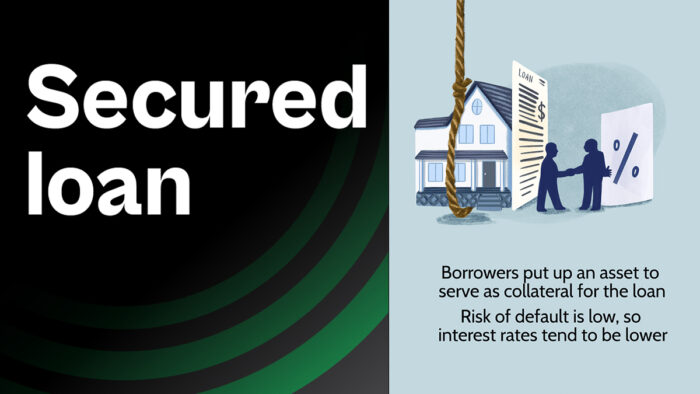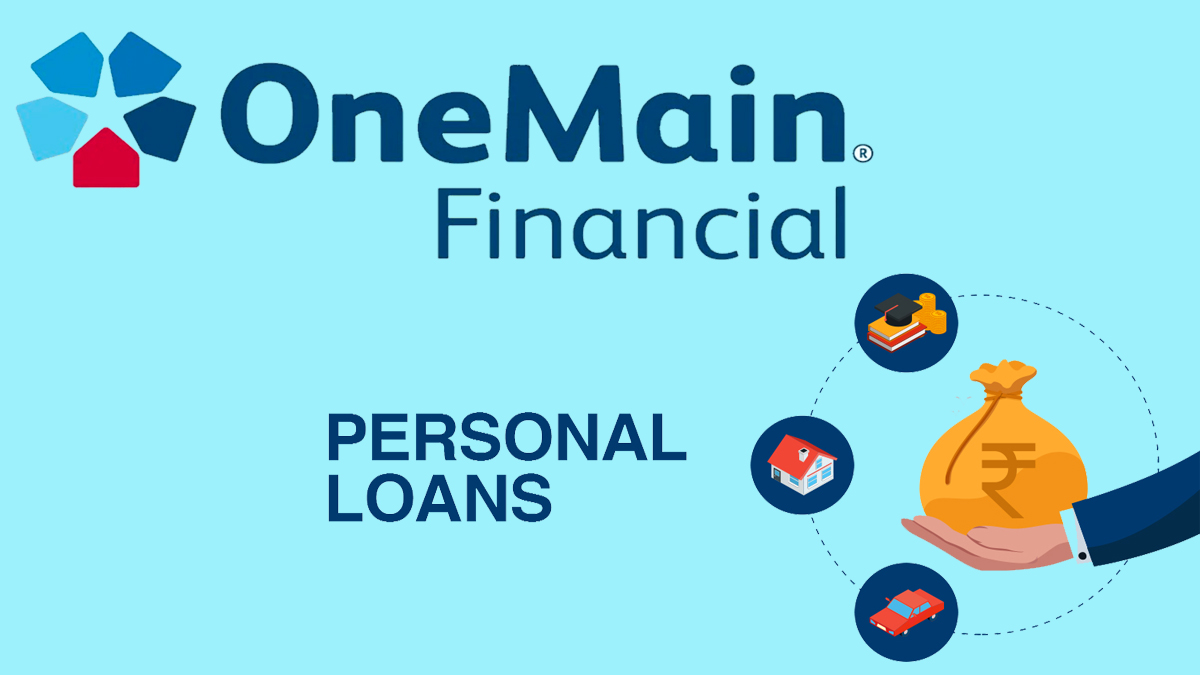A secured loan is a type of loan that is underwritten and obtained by an asset, like a house or car. Some examples of secured loans are car loans and mortgages. These assets that you provide will be used as collateral.

Hence, the collateral serves as a lender’s protection against the borrower’s default, reducing the risk for the lender and often allowing borrowers to qualify for larger loan amounts.
However, if the borrower fails to repay or defaults on the loan according to the terms agreed upon by both lender and borrower, the lender will seize the collateral to recover the outstanding and unpaid debt.
This process is known as foreclosure or repossession, but it depends on the type of collateral. Nevertheless, secured loans can be an effective way to borrow money for significant purchases or to consolidate debt.
On the other hand, borrowers need to carefully consider the risk of putting up collateral. Defaulting on a secured loan not only affects a borrower’s credit score but also results in the loss of the asset pledged as collateral.
Moreover, there are multiple places that you can apply for and secure this type of loan if you are interested. More importantly, you must understand that the requirements and application process of lenders differ.
How Does It Work?
When you take out or apply for a secured loan, this means that you are putting your collateral on the line. Besides, with this type of loan, you can finance large purchases like a vehicle or a new home, and reduce the lender’s risk. Nonetheless, you need to make sure you understand the consequences and risks of failing to pay back a secured loan before proceeding to borrow.
Types of Secured Loans
Just like personal loans, secured loans can be used for various purposes. Here are the types of secured loans you can apply for:
- Secured credit cards
- Bad credit loans
- Vehicle loans
- Life insurance loans
- Mortgages
- Home equity line of credit
- Pawnshop loans
- Savings-secured loans
- Car title loans
- Business loans
- Home equity loan
Pros and Cons
Here are the benefits and disadvantages of a secured loan:
Pros
- Flexible repayment terms.
- Lower interest rates.
- A minimum income is required.
- Larger loan amounts.
- Flexible repayment period.
- Tax-deductible interest.
- Excellent terms and conditions.
Cons
- Longer period.
- Seizing of collateral.
- Heavy paperwork.
- More debts.
- Affected credit score and credit history if you do not pay back the loan.
- The value of the asset must be the same as the loan amount.
- Full ownership of collateral assets.
What Can Be Used for Collateral?
When applying for a secured loan, the type of collateral you use depends on the use of the loan, whether it is for personal or business use. Here is what you can use as collateral when considering this type of loan:
- Real estate.
- Stocks, bonds, and mutual funds.
- Equipment, machinery, inventory, and other business assets.
- Insurance policies.
- Checking and savings accounts.
- Valuable assets like collectibles, metals, or coins.
- Money market accounts.
How to Apply for a Secured Loan
Applying for a secured loan involves different steps, which may vary slightly depending on the lender and the type of loan you’re seeking. Here’s a general guide to help you through the process:
- Assess your needs and eligibility.
- Choose what collateral you want to use.
- Look around for lenders.
- Prepare all the necessary documentation.
- Submit your loan application.
- Complete your credit and collateral assessments.
- Wait for approval.
- Read and sign the loan agreement.
- Receive the funds.
- Make payments on time.
Applying for this type of loan is an important financial decision that needs careful consideration and preparation. Make sure you understand the terms and risks involved with using your property as collateral.
What Happens If You Default on a Secured Loan?
When considering a secured loan, this is one of the questions you must research. Just like other types of loans, there are consequences for not paying back or defaulting on a loan. As for secured loans, if you fail to pay them back, the consequences depend on how far you delay your payments as well as the particular terms of the loan you borrowed.
Generally, having missed a payment on your debt can lead to lender-assessed late fees. Moreover, if you default on the loan for at least 30 days, this will result in late payments damaging your credit score and showing up on your credit history. If you do not make payments at all, then the lender will hold on to your collateral.
Secured vs. Unsecured Loans
Secured loans are different from unsecured loans in the sense that they need collateral. On the other hand, unsecured loans do not. Unsecured loans usually have higher interest rates but offer flexible and fast funding and application processes. As for secured loans, they offer lower interest rates because of the use of collateral.
FAQs
What types of assets can be used as collateral for a secured loan?
Common types of assets used as collateral for secured loans include real estate properties, vehicles, savings accounts, investment portfolios, and valuable personal belongings.
How much can I borrow with a secured loan?
The amount you can borrow with a secured loan depends on various factors, including the value of the collateral, your credit history, income, and the lender’s policies. Typically, lenders may offer loan amounts ranging from a few thousand dollars to several hundred thousand dollars.
Are there any risks associated with secured loans?
The primary risk associated with secured loans is the potential loss of the collateral if you fail to make timely loan payments. Additionally, if the value of the collateral decreases significantly, you may still be responsible for repaying the remaining loan balance.
How do I qualify for a secured loan?
To qualify for a secured loan, you will need to meet the lender’s eligibility criteria, which may include having a stable income, a good credit score, and sufficient equity in the collateral being used to secure the loan.
Can I use a secured loan to consolidate debt?
Yes, many borrowers use secured loans to consolidate high-interest debt into a single, more manageable loan with a lower interest rate. However, it’s essential to carefully consider the risks involved and ensure that you can afford the new loan payments.



